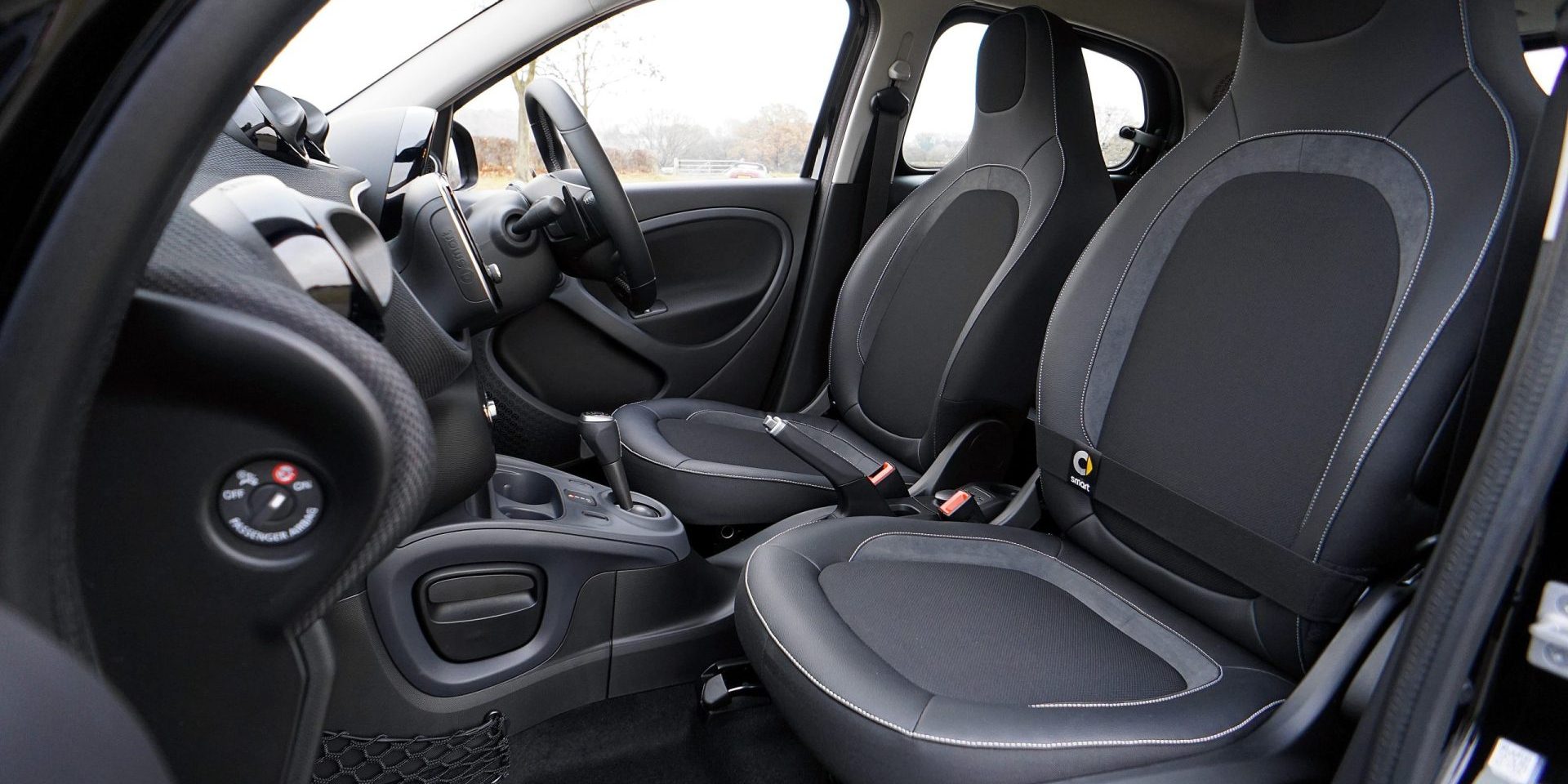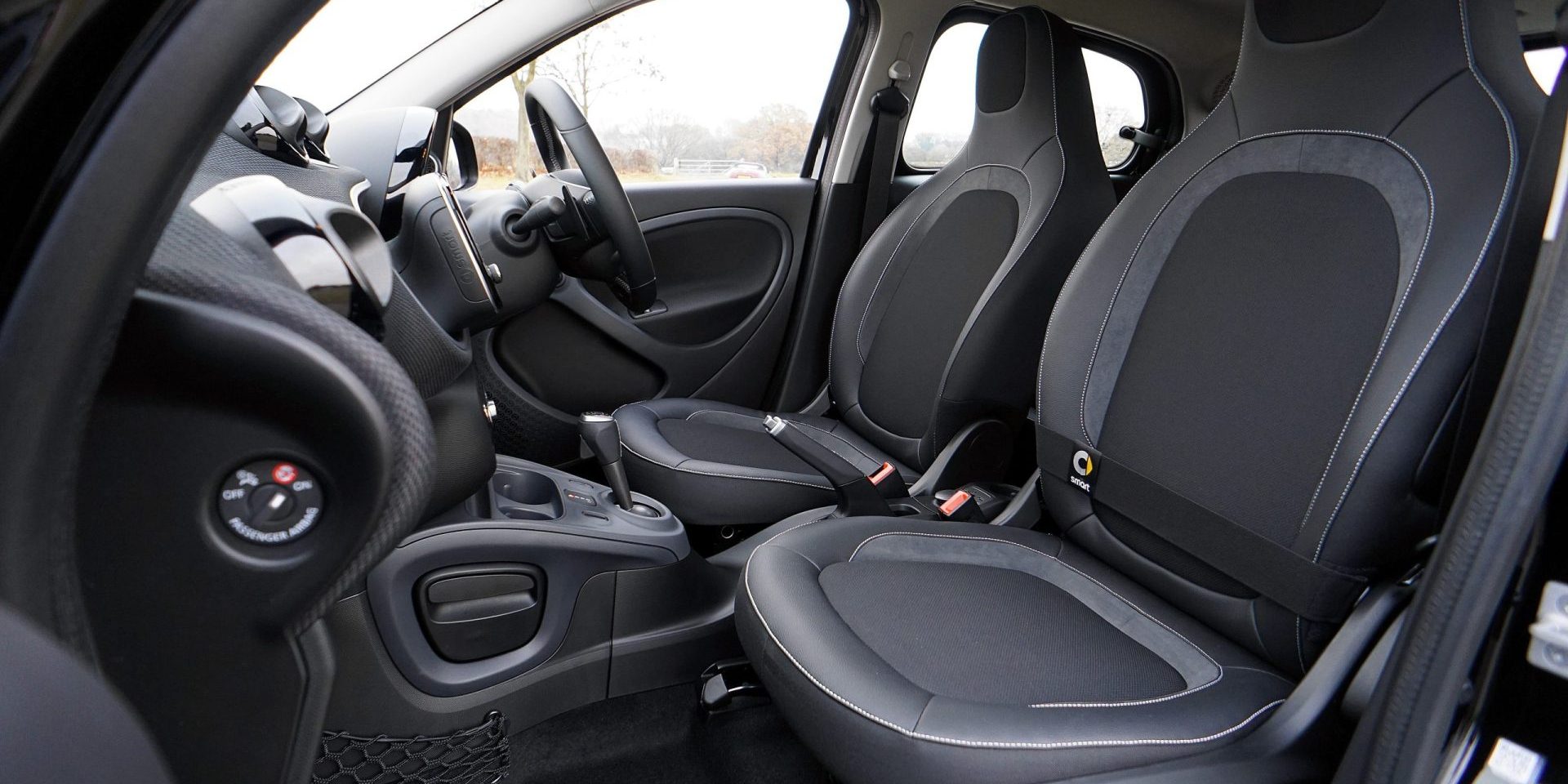How to fix AC in car blowing hot air


When the AC in your car is blowing hot air, it could be due to several factors. One possible cause is a refrigerant leak, which causes the AC system to lose its cooling effect. A faulty compressor clutch can also prevent the AC from functioning correctly. A clogged air filter or condenser unit can obstruct airflow causing the AC to blow hot air. Additionally, inadequate levels of refrigerant can result in insufficient cooling. Other potential culprits include malfunctioning thermostats and malfunction sensors.
To fix an AC that blows hot air, first, conduct a visual inspection for any obstructions or leaks in the system. Check the refrigerant pressure readings and ensure that they are within suitable ranges. Subsequently, replace any faulty components such as compressors, condensers or blockages in any hoses. If you’re unsure how to go about fixing it yourself, seek professional assistance.
It’s essential to keep your car’s AC unit maintained routinely to avoid problems down the line. Clean your filters frequently, check your refrigerant levels regularly and perform routine checks on clutches and motors.
Once I was on a long road trip when my car’s AC started blowing warm air instead of cool air. It turns out that I had forgotten to maintain my car’s AC system regularly! We ended up getting stuck during midday traffic in scorching heat until we finally got help fixing our malfunctioning AC unit at an auto repair shop nearby!
Summer heat can make you feel like a melting ice cream cone, but don’t let your AC blow hot air like a dragon’s breath.
Common causes for AC blowing hot air
To troubleshoot why your AC is blowing hot air, you first need to understand the common reasons for it. In order to identify the root cause, this section will walk you through the possible issues that your AC can be facing. Low refrigerant levels, issues with the compressor, and faulty or damaged condenser are the sub-sections that will be discussed as potential solutions to get your car AC back in working condition.
Low Refrigerant Levels
Inadequate refrigerant levels can cause your AC to blow hot air. A low volume of coolant means the compressor will struggle to function effectively, resulting in a reduction in cooling capacity within the system.
Insufficient refrigerant can also lead to ice build-up on the coils, making it more difficult for warm air to circulate. This causes the system’s evaporator coil to freeze, which affects its ability to cool your home.
To resolve this issue, it is important to check your refrigerant level and make necessary adjustments if needed. It is crucial to find and fix any leaks that may be causing the refrigerant loss since replacing coolant without identifying and repairing leaks will only result in recurrent issues with your AC.
If you don’t take immediate action when you notice hot air blowing from your AC vents, it may damage other parts of your unit, such as fan motors or condenser coils. Hence, it’s best practice to contact an HVAC technician as soon as possible after identifying this problem.
“A friend recently shared with me how she struggled with her AC unit that was blowing hot air continuously until she realized the root cause was minimal refrigerant levels. The technician found a tiny leak that had gone unnoticed for weeks which caused her refrigerant levels always being low. She had some critical parts of the unit damaged due to overworking before getting attention from a professional technician.”
Issues with the compressor
The AC’s heart ‘the compressor’ might run into complications, which are possible triggers of hot air flowing out instead of cool air. The compressor is responsible for compressing and circulating refrigerant gas inside the AC system that cools the air. When it malfunctions, refrigerant gas cannot adequately move as supposed to, resulting in hot air.
The primary cause of most compressor issues is wear and tear with time or inadequate maintenance leading to overheating and excessive pressure. When the electric clutch fails to engage correctly, this implies the compressor will not start with no operation airflow from the entire system. Also, clogging or leaking seals within the AC system puts undue pressure on the compressor than expected as it strives to maintain high airflow levels.
Noteworthy, an issue with other components such as a faulty electrical relay or switch can cause difficulties in starting or stopping its operations hence inhibiting proper functioning of the HVAC system.
A friend once shared how his car’s AC blew hot air due to a damaged electrical connector for his AC clutch coil connected close to compressor tripping fuses in two instances prior. Upon inspection by a professional mechanic, it was discovered that he had installed incorrect fuses in those instances attributed primarily to mismatched wiring of connectors between parts by a previous mechanic who serviced his vehicle before him. The lesson learnt? Proper maintenance protocols must be adhered to for effective performance longevity.
Faulty or damaged condenser
The AC blowing hot air may be due to a defective or impaired condenser, which plays an essential role in cooling down the refrigerant. The condenser is situated outside of the house and removes heat from the refrigerant, transforming it from high-pressure gas to liquid form. It does this by allowing cooler air to come into contact with its hot refrigerant-filled coils. Over time, dirt and debris accumulate in the condenser’s coils, impeding their heat-transfer capacity.
If the condenser becomes damaged or faulty, it will struggle to absorb heat effectively and release it outdoors, causing your AC system to blow warm air instead of cool. This can occur as a result of various factors, including leaks in the refrigerant pipe or damage from weather conditions such as hailstorms or high winds. In these cases, professional maintenance is usually required.
It’s important not to overlook any signs of damage on your condenser because they have a significant impact on your home’s air quality and energy efficiency. A poorly performing unit will consume more energy than necessary, resulting in higher electricity bills and reduced lifespan. Therefore, regular maintenance is critical to ensure that your AC runs at peak performance.
Hot air from your AC? Don’t sweat it, just follow these steps to cool things down.
Steps to fix AC blowing hot air
To fix your AC in the car blowing hot air, check for leaks, recharge the AC refrigerant, clean the condenser coils, change the filter, repair or replace the compressor, and visit a professional mechanic for assistance. These are the highlighted sub-sections that we will cover in the following steps.
Check for leaks
To ensure optimum performance of your AC, it’s crucial to examine its system for any potential leaks. Neglecting this essential aspect can significantly impair the system’s functionality and create unnecessary inconvenience in hot weather conditions.
Here is a 3-step guide to check for leaks in your AC system:
- Visually inspect all hoses for cracks or signs of wear and tear.
- Check for visible oil stains around connections, as these are indications of leakage.
- Use an electronic leak detector to sense any leaks that aren’t noticeable visually. Ensure that you cover all the joints thoroughly.
It’s important to make sure that the leak isn’t too severe; otherwise, it may harm other parts of the Air Conditioning system, leading to expensive repairs.
One additional point worth noting is that it’s typical for small amounts of refrigerant gas to escape from the air conditioning lines over time. You can top up your gases from authorized vendors yourself, but always exercise caution and heed their advice before proceeding with refilling procedures.
A few days ago, my friend encountered a similar issue with his air conditioner blowing hot air even though it was turned on. He realized that some parts of his AC were poorly configured and caused leakage in the system. His experience taught him a valuable lesson: always perform regular maintenance checks on your Air Conditioning unit to avoid such issues and save money in the long run.
Recharge the AC refrigerant
The process of restoring the cooling performance of an AC is a crucial step towards comfortable living. In order to properly extract heat from your home, you may need to replenish the refrigerant in your AC system. Here’s how you can perform Recharging of the AC refrigerant:
- First, turn off your air conditioning unit and locate the service valves on the refrigerant lines.
- Next, attach a refrigerant gauge hose to both individual service valves and carefully open them.
- Finally, add fresh refrigerant gas until it reaches manufacturer-specified levels.
Performing regular maintenance checks like this can help prolong the life of your AC unit while ensuring adequate performance when needed. When recharging the AC refrigerant make sure to take extra care as excessive refilling or wrong handling can lead to damage. Always read through manufacturer’s guidelines before beginning work on any AC-related repairs. Maintenance checks for an AC should be done consistently every 6 months or so.
Interestingly, most experts agree that if your air conditioning unit requires frequent servicing such as recharge due to low refrigerant levels, then it might be time for an upgrade and replacement.
Clean the condenser coils
The coils that remove heat from your AC unit deteriorate over time, leading to hot air blowing. Cleaning the condenser coils can rectify this problem.
To clean the condenser coils, follow these 5 steps:
- Turn off power supply and disconnect the unit entirely.
- Using a soft-bristled brush or compressed air, remove debris and dust from the fins residing on the exterior of your AC.
- Clean the fins by either purchasing an approved fin cleaner or gently hosing them down with water.
- Locate and clean any additional debris hiding within your outdoor unit.
- Reassemble the AC once everything dries by reconnecting it to the power source.
Cleaning condenser coils may increase efficiency and add longevity to your AC unit. However, note to avoid damaging individual lines or cutting electrical wires while cleaning.
A similar scenario was experienced by homeowner Janet Taylor who has a beachfront home in Florida. Her AC unit constantly blew warm air even though she left it running for long hours. After cleaning her condenser coil, she witnessed an instantaneous decrease in energy use plus improved airflow throughout her home.
Change the filter
Replacing the AC filter is an essential step in fixing hot air blowing issues. A dirty filter can cause the unit to work harder and less efficiently, leading to higher energy bills. It may also lead to poor indoor air quality, which can negatively impact occupants’ health.
- Turn off the power supply- Locate the circuit breaker that controls your AC system and turn it off.
- Locate the filter- Most filters are located near the return air duct or blower compartment of the system.
- Remove and Replace Filter- Remove the old filter from its frame and replace it with a new one. Ensure that you follow correct alignment instructions as specified by the manufacturer.
- Clean surrounding areas – After replacing a dirty filter, it’s crucial to clean up surrounding areas, including dusting, vacuuming, and wiping away any excess debris.
- Power on- Turn on your AC system circuit breaker after replacing your filter.
It’s best to replace filters every 1-3 months, depending on usage levels and environmental factors such as pets or allergies. Neglecting this step can cause costly repairs if airborne pollutants clog up sensitive mechanical components.
As filters come in various sizes, materials, and types, consult your user manual or contact a professional for more specific guidance on which type suits your AC unit.
A homeowner had hot air coming out of their AC instead of cool air due to lack of maintenance. Upon checking their air filter, they discovered layers of debris compiled over six months. They immediately replaced their filters and enjoyed energy-efficient cooling with improved indoor air quality without frequent AC breakdowns.
Repair or replace the compressor
When faced with an AC blowing hot air, repairing or replacing the compressor is a crucial step towards fixing the issue.
- The first step is always to diagnose the problem and determine whether repair or replacement is necessary.
- If the compressor requires repair, it may be due to a faulty capacitor, electrical issues, or damage to the internal components.
- Repairing a compressor involves removing it from the system, fixing any faults, and then reinstalling it.
- If replacement is necessary, finding a suitable replacement unit can be challenging and may require consultation with a professional HVAC technician.
- A new compressor installation typically involves removing the existing unit, cleaning out any debris, installing new components and compatibility checks for compatibility throughout the AC system.
- Hiring professionals to handle your system guarantees that stringent standards have been used during diagnosis and repair procedures while eliminating further damage risks as they provide good guidance for future maintenance requirements.
It is important to note that inefficiencies caused by delays in resolving such issues may lead to additional energy consumption hence higher electrical bills and more frequent maintenance and replacements.
Scheduling regular inspection and maintenance sessions will go a long way in avoiding costly repairs or replacements of more extensive damaged parts of your AC machinery among other concerns over effects of malfunctioning air conditioners.
Visit a professional mechanic
Getting a professional’s assistance in matters related to AC can reduce your inconvenience by 50%. Avail yourself with an expert’s help for your AC unit, and ensure the proper functioning of your cooling device. They will diagnose the root cause and guide you through suitable repairing methods.
To begin with, it is advisable to seek professional guidance if you are not proficient in fixing air conditioning units. A qualified technician will examine your air conditioning system thoroughly and then provide a solution accordingly. They will check everything from filters to blower motors to ensure smooth performance.
Moreover, when seeking a professional mechanic’s help, try to look for authorized HVAC contractors as they have the necessary expertise and knowledge needed for effective repairs. They might charge you more than local ones but will probably deliver better results.
In case you encounter issues or errors with your cooling system that are uncommon or beyond your understanding, do not try to fix them on your own. Doing so may result in worsening the condition, creating more expenses and inconvenience in the long run.
A colleague once tried troubleshooting her AC herself after noticing it blowing hot air. In her hastiness, she broke down some critical parts within her device that obviously complicated things even further than before- ultimately yielding an even more annoying cost of repair than it would have been if she’d brought it into a professional mechanic right away!
Preventative measures to avoid AC blowing hot air
To prevent your car’s AC from blowing hot air, regular maintenance and check-ups, protection from extreme temperatures, and good driving habits can make all the difference. Additionally, avoiding harsh chemicals and substances near your car’s AC system can help keep it running smoothly. In this section, we’ll explore some preventative measures to ensure your car’s AC remains in optimal condition, including these sub-sections: regular maintenance and check-ups, protection from extreme temperatures, driving habits that can prolong AC life, and avoiding harsh chemicals near the AC system.
Regular maintenance and check-ups
Regular maintenance and upkeep of your air conditioning unit can help prevent it from blowing hot air. It is essential to schedule periodic evaluations and servicing to ensure that your system runs efficiently. Timely cleaning and repair of the unit’s internal components like filters, ducts, coils, and condenser can go a long way in increasing the AC’s lifespan.
To avoid AC blowing hot air, another recommended measure is replacing air filters every three months. Blocked filters restrict airflow in the system resulting in reduced cooling performance. It’s important to check the thermostat’s accuracy periodically as well since improper calibration could lead to hot-air issues. While performing maintenance, checking for leaks or inadequate refrigerant quantities (the colorless fluid responsible for cooling) should also be included.
Driving habits that can prolong AC life
Driving techniques to extend the lifespan of your AC unit are crucial for maintenance. To maximize its utility, some significant considerations will assist you in maintaining an efficient and functional air conditioning system.
- Limiting idling periods decreases stress on the compressor and reduces AC wear.
- Cleaning the cabin filter often will enhance airflow, allowing the AC to work more efficiently.
- Avoiding utilizing the Max air setting or recirculation for long periods may help prevent mildew buildup.
- When parking under direct sunlight, consider utilizing sunshades or window tinting to decrease temperature fluctuations.
It is advisable not to overlook preventive measures as they play a significant role in enhancing AC life expectancy. By implementing these suggestions regularly, individuals can save money on costly repairs while keeping their vehicle’s interiors comfortably cool.
To prolong AC performance, try running it regularly—utilizing it at least once a week for 10-15 minutes aids in keeping its components lubricated while preventing issues caused by idle temperatures.
How to fix ac in car blowing hot air – Frequently Asked Questions
Q: Why is my car’s AC blowing hot air?
A: There are several reasons why your car’s AC may be blowing hot air, including low refrigerant levels, a malfunctioning compressor, or a clogged or leaking condenser.
Q: Can I fix my car’s AC myself?
A: While some minor AC issues can be fixed by a DIYer with automotive knowledge, most repairs should be left to a professional mechanic who has the proper tools and experience to diagnose and fix the problem correctly.
Q: How much does it cost to fix a car’s AC?
A: The cost of repairing a car’s AC will depend on the extent of the problem, the make and model of the car, and the location of the repair shop. On average, AC repairs can cost anywhere from $100 to $1,000 or more.
Q: How long does it take to fix a car’s AC?
A: The length of time it takes to fix a car’s AC will depend on the nature of the problem. Some repairs can be completed in as little as an hour, while others may take several days if major components need to be replaced.
Q: What is involved in fixing a car’s AC?
A: Fixing a car’s AC typically involves diagnosing the problem, repairing or replacing any faulty components, and recharging the system with refrigerant. The mechanic may also perform a leak test to ensure there are no underlying issues that could cause future problems.
Q: How can I prevent my car’s AC from blowing hot air?
A: To prevent your car’s AC from blowing hot air, make sure to have it serviced regularly by a professional mechanic. This can help ensure that any minor issues are caught and addressed before they become major problems. You should also avoid running the AC on high for extended periods, as this can cause the system to overwork and potentially fail.











[…] your car has a cabin air filter, clean or replace it regularly as clogged filters can reduce […]
[…] blow a fuse over your AC not working, make sure to check the blower fan; sometimes it’s just blowing hot air like a […]